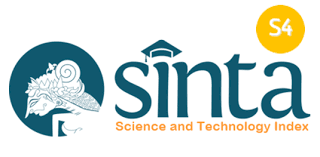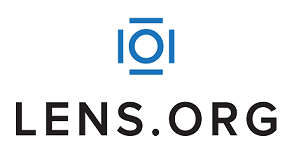STUDI CROSS-SECTIONAL: PERSEPSI MASYARAKAT TERHADAP PENERIMAAN VAKSINASI COVID-19 DI KABUPATEN KARANGASEM
DOI:
https://doi.org/10.37294/jrkn.v5i2.343Keywords:
COVID-19, penerimaan vaksin, KarangasemAbstract
ABSTRAK
Latar Belakang: Vaksinasi COVID-19 merupakan salah satu upaya untuk mengatasi pandemi COVID-19 yang terjadi saat ini. Tingkat penerimaan vaksinasi yang rendah dapat menghambat tercapainya herd immunity. Tujuan dari penelitian ini adalah untuk mengetahui gambaran persepsi masyarakat terhadap penerimaan vaksinasi COVID-19 di Kecamatan Karangasem Kabupaten Karangasem.
Metode: Desain penelitian studi cross-sectional dengan populasi masyarakat Kecamatan Karangasem berusia 18-59 tahun. Besar sampel 184 orang didapat dengan teknik voluntary sampling. Data dikumpulkan secara online menggunakan google form. Analisis data menggunakan uji chi-square.
Hasil: penerimaan vaksinasi sebesar 96,20% dan 3,80% menolak karena memiliki riwayat penyakit komorbid. Variabel yang berhubungan signifikan dengan penerimaan vaksinasi COVID-19 adalah jenis kelamin perempuan (OR=1,62; 95% CI 0,26-11,32), usia lebih dari 55 tahun (OR=3,42; 95% CI 0,44-26,59), pendidikan terakhir perguruan tinggi (OR=11,41; 95% CI 1,32-529,13), persepsi kerentanan terinfeksi COVID-19 yang tinggi (OR=7,79; 95% CI 1,20-83,41), persepsi keparahan terinfeksi COVID-19 yang tinggi (OR=4,37, 95% CI 0,67-46,07), persepsi manfaat vaksinasi COVID-19 yang tinggi (OR=7,79; 95% CI 1,20-83,41), dan persepsi hambatan melakukan vaksinasi yang rendah (OR=5,73; 95% CI 0,10-64,08).
Kesimpulan: penelitian selanjutnya perlu untuk mengkaji terkait penyakit komorbid terhadap penerimaan vaksin COVID-19.
Kata kunci: COVID-19, penerimaan vaksin, Karangasem
ABSTRACT
Background: The COVID-19 vaccination is one of the efforts to overcome the current COVID-19 pandemic. Low vaccination acceptance rates can hinder the achievement of herd immunity. The purpose of this study was to describe the public perception of receiving COVID-19 vaccination in the Sub-district of Karangasem, Karangasem Regency.
Methods: The design of study used a cross-sectional study with the population of Karangasem Sub-district aged 18-59 years. The sample size of 184 people was obtained by voluntary sampling. Data collected online using google form. Chi-square test were used for data analysis.
Results: vaccine acceptance rate was 96.20% and 3,80% refuse to get vaccine because they have comorbid. Variables that have a significant associate to the acceptance of COVID-19 vaccination are female gender (OR=1,62; 95% CI 0,26-11,32), age more than 55 years (OR=3,42; 95% CI 0,44-26,59), last college education (OR=11,41; 95% CI 1,32-529,13), high perceived of susceptibility to COVID-19 infection (OR=7,79; 95% CI 1,20-83,41), high perceived of severity if infected with COVID-19 (OR=4,37, 95% CI 0,67-46,07), high perceived benefits of COVID-19 vaccination (OR=7,79; 95% CI 1,20-83,41), and low perceived barriers to vaccination (OR=5,73; 95% CI 0,10-64,08).
Conslusion: Further research need to study related comorbid to COVID-19 vaccine acceptance.
Keyword: COVID-19, vaccine acceptance, KarangasemDownloads
References
Al-Mohaithef, M., & Padhi, B. K. (2020). Determinants of covid-19 vaccine acceptance in saudi arabia: A web-based national survey. Journal of Multidisciplinary Healthcare, 13, 1657–1663. https://doi.org/10.2147/JMDH.S276771
Glanz, K., Rimer, B. k., & Viswanath, K. (2015). Health Behavior: Theory, Research, and Practice. In Jossey-Bass (Vol. 5).
Goruntla, N., Chintamani, S. H., Bhanu, P., Samyuktha, S., Veerabhadrappa, K. V., Bhupalam, P., & Ramaiah, J. D. (2021). Predictors of acceptance and willingness to pay for the COVID-19 vaccine in the general public of India: A health belief model approach. Asian Pacific Journal of Tropical Medicine, 14(4), 165–175. https://doi.org/10.4103/1995-7645.312512
Irwan. (2017). Etika dan Perilaku Kesehatan. Yogyakarta: Absolute Media.
Kementerian Kesehatan et al. (2020) ‘Survei Penerimaan Vaksin COVID-19 di Indonesia - Hasil Kajian’, (November). Available at: https://covid19.go.id/edukasi/hasil-kajian/covid-19-vaccine-acceptance-survey-indonesia.
KPCPEN & Kementerian Kesehatan RI. (2021). Paket Advokasi Vaksinasi Covid-19. Retrieved from www.covid19.go.id
Shmueli, L. (2021). Predicting intention to receive COVID-19 vaccine among the general population using the health belief model and the theory of planned behavior model. BMC Public Health, 21(1), 1–13. https://doi.org/10.1186/s12889-021-10816-7
Souvriyanti, E., & Rezeki Hadinegoro Sari, S. S. (2004). Hubungan vaksin Measles, Mumps, Rubella (MMR) dengan Kejadian Autisme dengan Kejadian Autisme. 6(1), 2–9.
Wong, L. P., Alias, H., Wong, P.-F., Lee, H. Y., & AbuBakar, S. (2020). The use of the health belief model to assess predictors of intent to receive the COVID-19 vaccine and willingness to pay. Human Vaccines & Immunotherapeutics, 16(9), 2204–2214. https://doi.org/10.1080/21645515.2020.1790279
Wong, M. C. S., Wong, E. L. Y., Huang, J., Cheung, A. W. L., Law, K., Chong, M. K. C., … Chan, P. K. S. (2021). Acceptance of the COVID-19 vaccine based on the health belief model: A population-based survey in Hong Kong. 39(Vaccine), 1148–1156.

 TEMPLATE JURNAL
TEMPLATE JURNAL








